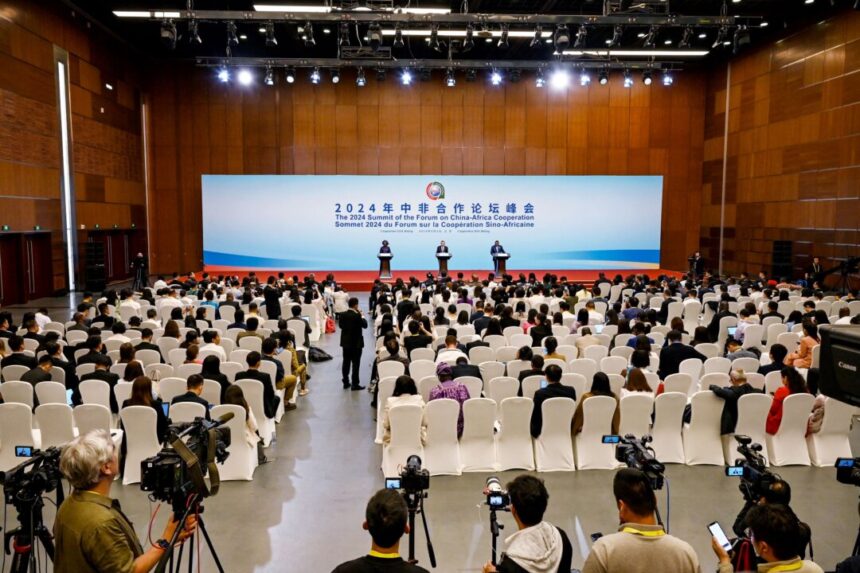During the China-Africa Cooperation Summit in Beijing, Xi Jinping made a commitment to provide jobs and increase lending to over 50 African nations. This pledge includes an additional 360 billion yuan (about $51 billion) in credits and aid over the next three years, along with an increase in infrastructure projects to employ a million workers.
This decision reflects Beijing’s determination to strengthen its Belt and Road Initiative (BRI) in Africa, despite the economic challenges facing China. Xi Jinping emphasized the importance of the BRI to both China and Africa, stating that the shared future lies in modernization and cooperation between the two regions.
China’s increased investment in Africa comes at a time when its own economy is facing difficulties, particularly due to the property crisis and slow economic growth. The BRI scheme has faced setbacks in the past, with some recipient countries struggling to meet their financial obligations.
Despite criticisms of the BRI’s structure and potential risks for developing countries, Xi Jinping’s commitment to African partners aims to sustain the program and strengthen ties between China and Africa. This move demonstrates China’s strategic focus on expanding its influence and economic partnerships in the region.
The Chinese Communist Party (CCP) is willing to bear the economic and financial burdens in China to continue reaping the benefits of the Belt and Road Initiative (BRI). Despite the strain it puts on recipient countries, the CCP is likely to make more commitments in the future. While costly, this approach is preferable to a military alternative.
Please note that the views expressed in this article are the author’s own and not necessarily reflective of those of The Epoch Times.
Source link





